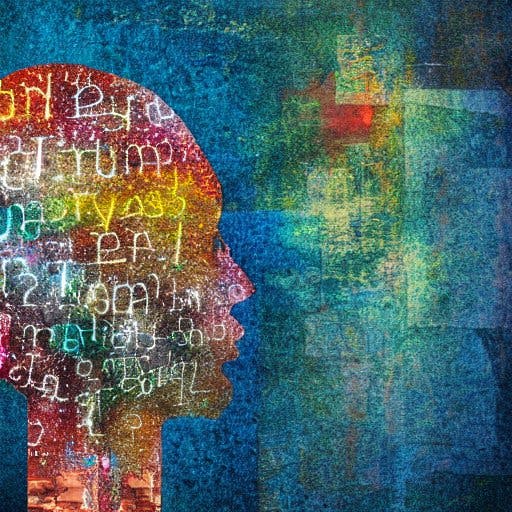
The Identity Economy and NFTs: Insights from Professor Markus Andrew and Voltaire Capital Research
A Fabulous Fad
The latest craze surrounding NFTs, with people paying astronomical prices for seemingly mundane objects like a static JPEG, has left many wondering whether this trend is based on organic and sustainable growth or is simply another example of tulip mania. As someone who has pondered this question myself, I believe that while the NFT industry is still in its infancy and will inevitably experience a crash at some point, similar to what occurred with DEFI in 2020 and ICOs in 2017, it will ultimately rise again like a phoenix from the ashes. The driving force behind this resurgence lies in identity building, and as such, NFTs are likely to remain a significant player in the digital world for some time to come.
Identity
Your identity is how you view yourself in the world relative to others accompanying the environment, such as your interests, disinterests and where you as an individual fits into the world. This aspect of self is always protean and distinctive which is a contradiction from the Latin origin of the word “idem” meaning same.
Expression of Identity
You constantly express your identity through the selection of words you use in conversations as they reveal your inner most thoughts of a subject matter via negative,positive or neutral connotation. For example an individual who constantly uses words with negative connotation may be pessimistic or someone who chooses positive connotative words may be an optimist, whereas an individual who uses neutral connotation may not have a fixed world view or views it objectively. The simplest and most noticeable way we express ourselves is through the clothing we wear as they may reveal our confidence level (showing skin or not) or perhaps the colors we like.
Expression of Identity in Human History/Biology
Hannah Arendt was a political philosopher born in 20th century Germany and lived through the events of the Holocaust. She argued that the reasons the Nazis were able to commit such atrocities against their follow man and not have anyone stand against them was because of the primal human need to conform, as humans beings are herd animals our survival depends on belonging to a specific group thus instinctively we are discouraged from outing ourselves out of the group and instead aligning our behavior with the others around us as studies have even shown that social disapproval triggers the amygdala (fear center) in the brain.
FOMO
The term FOMO came into usage around 2003 with the rise of social media. Whereas once people were limited to our immediate in-person network, the rise of social media at the turn of the millennium opened us to real-time access to events going on in the entire world, and the phenomenon of Fear Of Missing Out, or FOMO, was coined. Recent studies estimate that around 72% of adults in developed countries suffer from the “sometimes all-consuming feeling” that something important is happening and they are not a part of it. FOMO is defined by Wikipedia as a fear of regret of missing an opportunity for a social interaction, memorable experience, or profitable investment. The Amygdala and Limbic system play an important part in FOMO, as deeper brain structures important to survival trigger our fear, which is a prime motivator of behavior, as survival of the individual depends on social inclusion in a group. LORETA EEG brain mapping shows that areas of the brain associated with social inclusion light up during a situation designed to simulate FOMO. The human brain has evolved to track inclusion in a group and social status, which ensures our future survival, and these deep unconscious structures are triggered when we feel that something important is going on and we are left out, becoming lower-status. Thus, when we see crypto twitter full of avatars from Cyber Punks, Bored Ape Yacht Club, Penguins, and the like, we tend to think that we are missing out, and rush to catch up to what the in crowd is doing, signaling that we are part of the crypto elite. Now that high profile athletes are entering the crypto sphere, with all-world great NBA Stephen Curry becoming a member of the Bored Ape Yacht Club, and NFL GOAT Tom Brady shilling for FTX exchange, crypto is becoming mainstream, and this Fall FOMO into crypto may reach mainstreet USA.
Introducing NFTs
So where do NFTs fit into this narrative? with more of our time being spent online in a sort of virtual community with an infinite amount of people, identity expression online is emphasized to a much greater degree than ever, as well as FOMO as our primal instincts and desires crave to find subgroups that share our interests , as finding subgroups that resonate with us is crucial for a healthy state of mind. Because with failure to do so results in it becoming harder to find where we belong and thus as a result will lead to loneliness , depression, or even in some cases being forced to be apart of a group that is a danger to others such as the holocaust example, or a complete contradiction to ourself which may result in identity conflict and cause stress. So that being said why would it be any different online and this is when NFTs enter the picture as they allow people to express their identity online through the use of digital images such as Crypto Punks as well as an added monetary aspect which bolsters the ownership economy so it is no question as to why people are spending thousands and even millions of dollars to express themselves online even if it may be a financial detriment to them as self expression is priceless and the primal instincts to belong are untamable.